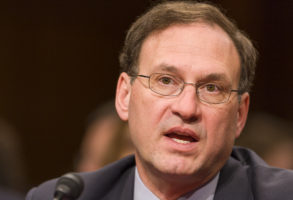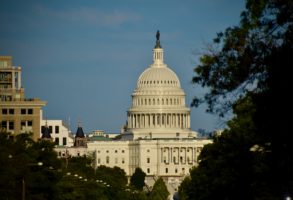Published November 3, 2015
Ben Sasse, who was elected to the Senate from Nebraska last year, is a prominent member of the promising younger generation of Republicans in Congress. He’s a historian by training, was a college president, an official in HHS and DOJ in the Bush administration, and a management consultant who specialized in turning around failing institutions.
That combination could well make Sasse particularly valuable in the kind of institutional reform the Congress now requires. A lot of the attention of people who worry about congressional dysfunction has been focused on the House in recent years—for some good reasons and some bad ones. But if the problem is that Congress ultimately isn’t legislating, or isn’t acting to assert itself in the constitutional system, the Senate has surely been the bigger obstacle.
The effort to turn around a dysfunctional institution with a proud and complex history and enable it to better confront the administrative state should be right up Sasse’s alley, given his background. And today, having revived for himself the old tradition by which a new senator waits a year after his election before his maiden floor speech, Sasse spoke up for that cause.
The Senate’s problem, Sasse suggested, is not an excess of partisanship but a shortage of substantive work. “While I am in favor of more civility,” he said, “my actual call here is for more substance. This is not a call for less fighting – but for more meaningful fighting.”
And among the most significant subjects to take up, he argued, was the place of the Congress, and the Senate in particular, in the constitutional system, which he intends to make his focus over the coming year:
This will not be a partisan effort; it will not be a Republican senator criticizing the current administration because it is Democratic. Rather, it will be a constructive attempt to understand how we got to the place where so much legislating now happens inside the executive branch – for this kind of executive overreach came about because of a great deal of symbiotic legislative underreach. Republicans and Democrats are both to blame for grabbing more power when they have the presidency; and Republicans and Democrats are both to blame in the legislature as well for not wanting to lead on hard issues and take hard votes, but rather to sit back and let successive presidents gobble up more authorities. We can and we must do better than this.
The reassertion of Congress’s place in our constitutional system should be a prime concern for every member of Congress. It’s easy for Republicans to make arguments like this now, and it would be easy to dismiss them as just efforts to reduce the power of this particular president. But I think it’s immensely important for Republican members of Congress to get on the record on this subject now, precisely so that it’s harder for them to change their tune the next time there’s a Republican president.
In fact, they (and we all) ought to press the Republican presidential candidates to commit now not to make use of the novel and unconstitutional executive powers President Obama has claimed for himself, and so to make sure those executive excesses come to be understood as repulsive aberrations and not lasting precedents. And when Democrats suddenly discover the appeal of a congressional re-assertion when their party is next out of the White House, Republicans should welcome their change of heart, and should turn it toward meaningful repairs in our constitutional balance of powers—repairs they should be thinking through and planning out now, even if they have little chance of being enacted under this president.
That process is clearly beginning among some members of Congress in both houses. Ben Sasse looks likely to have a lot to contribute to that vital effort.
Yuval Levin is the Hertog Fellow at the Ethics and Public Policy Center.







